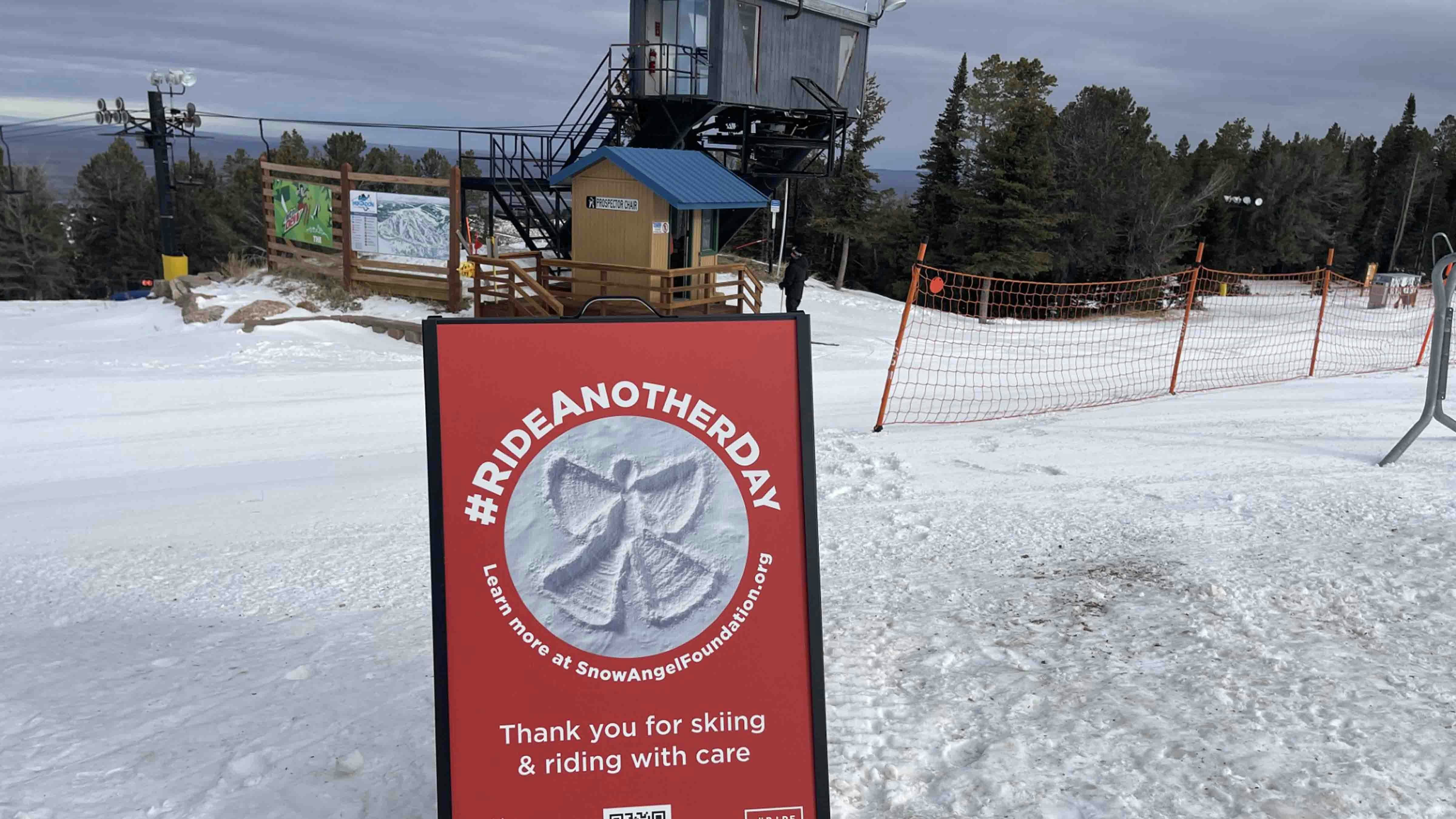While hunters on private property in places like Texas have no problem putting piles of corn bait out in front of their deer blinds, in Wyoming and other Western states, that’s frowned upon as unethical, and it’s also illegal.
Western hunters would consider putting out corn for deer or salt licks for elk to essentially be cheating nowadays, although at one time, using salt licks to draw in elk was considered fair play in Wyoming.
Feeding A Controversy
There’s a distinction between feeding animals such as elk or deer, perhaps to help them through a tough winter, and using bait to draw them into shooting range.
It’s not illegal to feed big game animals on private property, but it is generally discouraged.
The Wyoming Game and Fish Department admonishes people not to feed hay to deer because it can kill them. Instead, deer must be given artificial feed specially formulated for their digestive systems.
With elk, it’s a different story.
They can digest hay, and the state and federal governments sometimes feed it to them.
Elk are fed during the winter on the National Elk Refuge near Jackson, and at Game and Fish feedgrounds.
Some people think the state should also feed deer during unusually harsh winters.
During the brutal winter of 2022-2023, massive numbers of Wyoming deer starved to death. Game and Fish came under fire for not feeding deer that winter, even though deer were fed in Utah.
Massive numbers of the treasured Wyoming Range mule deer died that winter, including nearly all of that year’s crop of fawns.
When Lines Blur Between Feeding And Baiting
Even when focused feeding isn’t being done, wildlife frequently rely on private property for forage, water and shelter.
That’s why allegations of baiting wildlife on private property can be vague, hunting outfitter Daniel Richins told Cowboy State Daily.
He leases hunting property in Utah and southwest Wyoming.
He said that to his knowledge, deliberate baiting of big game isn’t a widespread problem in the region.
However, landowners essentially “feed” wildlife herds, which congregate on their property and eat forage — leaving that much less for livestock, he said.
Landowners should be able to manage their property as they see fit, he said. For example, it wouldn’t be fair to try to claim that allowing hunters to set up near a crop field amounted to “baiting” big game.
In Wyoming, there’s been controversy stemming from ranchers claiming that ballooning numbers of elk are overrunning their property, and hunters complaining that they’re not granted enough access to private property to shoot elk and thin out the herds.
Richins said that Utah’s Cooperative Wildlife Management Unit (CWMU) program has been a success in that regard.
It compensates ranchers for supporting game herds, while also granting free access to those ranches for hunters who draw permits.
Salt Licks In The Old Days
Ron Dean of Etna is no stranger to wildlife feeding programs. He supervised the Game and Fish’s elk feeding program for 33 years before retiring from the agency.
He told Cowboy State Daily that during his career, he wasn’t aware of rampant big game baiting.
When it did happen, it was low-key, he said.
Decades ago, “some outfitters and hunters would put out salt blocks to attract elk,” he said.
That was legal back then, but has since been outlawed.
Salt blocks are still used for cattle. That can make it difficult for game wardens to determine if hunters are cheating, retired Game and Fish warden Benge Brown told Cowboy State Daily.
“It’s hard to know for sure, whether it’s the landowner putting out salt blocks for livestock, or the hunter putting out salt blocks to hunt over,” he said.
Antler Growth Formula
Brown said he didn’t see much illegal game baiting in Wyoming. During his career he cited only two hunters for it, one of them two years in a row.
The violations were all on private property, he said.
In one case, the hunter was using “a high-dollar deer feed designed to artificially promote antler growth,” he said.
The other hunter was using “whole-kernel corn” to entice deer.
“It is legal to feed deer corn on your own property, but you can’t set up and hunt over it,” he said.
Baiting Case Blew Up In Utah
Attitudes toward game baiting came into focus last year in Utah.
Controversy erupted when a former member of the Utah Wildlife Board was hit with a felony charge stemming from allegations that he illegally baited mule deer, giving paying hunting clients better chances of shooting huge bucks on his property.
Investigators claimed that Wade Heaton, 51, used corn feed and salt licks to draw in bucks on his ranch in Kane County, Utah, where he is a county commissioner.
He owned and operated Color Country Outfitters on his property, and six of his employees were also charged in the scandal.
Investigators from the Utah Division of Wildlife Resources alleged that the most egregious offenses happened from August 2022 to September 2023.
That’s the basis of a second-degree felony charge against Heaton for a pattern of unlawful activity, The Salt Lake Tribune reported.
Clients paid up to $48,000 each for the hunts, according to reports.
Controversy Continues Over Bear-Baiting
While it’s illegal to bait big game animals, baiting black bears is allowed in Wyoming.
Some have called for the practice to be banned, claiming that it’s an unethical way to hunt bears.
Hunters who use bear bait argue that it gives them time to carefully observe bears that come into their bait sites. That prevents them from unintentionally shooting females, especially those with cubs.
Mark Heinz can be reached at mark@cowboystatedaily.com.





